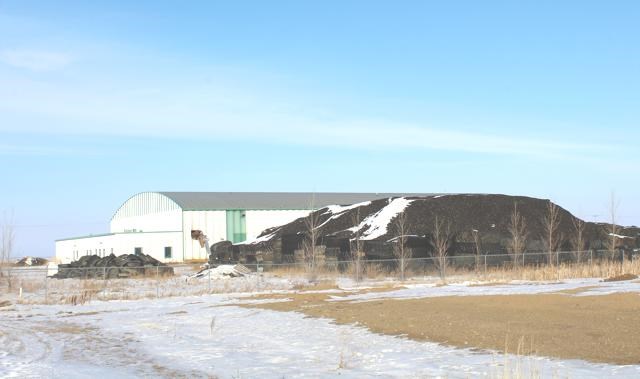The Saskatchewan Association of Rural Municipalities held its midterm meeting on November 7-8 in Regina.
A number of issues topped the agenda, including a presentation by the Tire Stewardship of Saskatchewan (TSS).
With the backing of SARM, TSS is making it a priority in 2018 to help support a solution for Assiniboia to address the abandoned stockpiles of tires and address public health and safety concerns.
The Tire Stewardship of Saskatchewan Inc. is the new approved program operator for the Scrap Tire Recycling Program in Saskatchewan. In early 2017 the Minister of Environment established an independent advisory committee to conduct a program review and provide recommendations for improvements based on extensive stakeholder engagement. The review resulted in the Ministry issuing new regulations and guidelines for the approved program operator in keeping with these recommendations.
When the Saskatchewan Scrap Tire Corporation (SSTC) decided to wind down its operations, the Retail Council of Canada and the Western Canada Tire Dealers stepped forward to establish a new organization, the TSS, to operate the program and ensure continuity of service for retailers.
The TSS took over status quo operations on September 1 and has been coordinating closely with the SSTC to provide a smooth transition. At the end of September, the TSS submitted a proposed Product Stewardship Program to the Environment Minister for approval to operate the program between 2018 and 2020. The TSS recently received its approval.
According to TSS, it aims to operate an efficient tire recycling program across Saskatchewan. TSS wants to have the best tire recycling program in Canada. It intends to provide effective stewardship to avoid the hazards of safety and health that scrap tires can present. TSS is also looking to improve the environment and support industry and economic success to get the most value from consumer-paid tire recycling fees.
TSS plans to work together with stakeholders, the provincial government and contracted service providers to collect, process and recycle scrap tires responsibly in Saskatchewan.
TSS wants to operate a province-wide, effective recycling program on behalf of retailers to ensure they responsibly meet their legislated obligations for scrap tire management in Saskatchewan. It will ensure that retailers receive responsive scrap tire collection that is conducted in a cost efficient, environmentally responsible manner to reduce greenhouse gas emissions and avoid stockpiling. It will also promote a sustainable system for scrap tire processing which encourages timely recycling of scrap tires into higher value end uses and markets to support a viable industry in Saskatchewan.
TSS plans to provide programming and solutions to deal with legacy scrap tires to avoid tires going back into landfills and prevent the health and safety hazards of legacy stockpiles. It intends to manage program operations in a transparent, accountable and efficient manner as a stewardship organization to get the most value from consumer-paid tire recycling fees. There is also a consumer educational element to the tire recycling program.
The biggest changes for the Product Stewardship Program is that there will be a smaller, industry-focused board of directors and the TSS Advisory Committee and Industry Working Groups will be set up.
The groups will be focused on good governance and stewardship.
The PSP is working to improve efficiencies for retailers and for TRF remittance, reporting and communication. The program plans to implement a zone collection model as well as a two-tiered processor incentive payment model. There is also planned programming to improve compliance among retailers, collectors and processors. Changes will be implemented in a phased approach over the three-year approval period.
Legacy tire programming envisions plans for a Legacy Clean-up Fund and a coordinated community and municipal pickup days. In 2018, the TSS鈥檚 priority will be to support a solution for Assiniboia鈥檚 abandoned stockpiles to address public health and safety concerns
Other hot topics discussed at the meetings were rural crime and the wildfires. SARM is calling for more support for the victims of wildfires which are not insurable like floods and other natural events.




